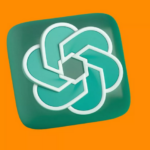Finding your dream job in software engineering may seem challenging, but with the right strategy, you can make it a reality. Here’s a comprehensive guide to help you navigate the job search process and land a role that aligns with your skills, values, and long-term goals.
1. Define Your Dream Job
First, get a clear picture of what your ideal software engineering job looks like. Consider factors like:
- Type of Work: Are you interested in front-end, back-end, full-stack, or mobile development? Or perhaps you’re drawn to AI, data science, or DevOps?
- Company Culture: Do you want a collaborative team, a startup environment, or a structured corporate setting?
- Impact and Values: What industries or causes matter to you? Whether it’s fintech, healthcare, or social impact, finding a field you’re passionate about can make your work feel more meaningful.
- Career Growth: Think about whether you want a role that offers mentorship, quick advancement, or the chance to lead projects.
Knowing your preferences makes it easier to target jobs that fit your career aspirations.
2. Build and Refine Your Skills
Once you have a clear vision, focus on the technical skills you’ll need. Software engineering is a broad field, so aim to master the key tools and languages relevant to your chosen area. For instance:
- Core Skills: Proficiency in languages like Python, Java, C++, or JavaScript is essential for most roles.
- Frameworks and Tools: For front-end roles, you might need experience with React or Angular, while back-end positions may require expertise in Node.js, Django, or Spring.
- Version Control: Knowledge of Git is generally required for collaboration and project management.
- Coding Practices: Familiarize yourself with testing, debugging, and software development methodologies like Agile or DevOps to enhance your professional readiness.
Use online courses, bootcamps, or open-source contributions to solidify your skills and stay current with industry trends.
3. Create an Impressive Portfolio
A strong portfolio can help you stand out to employers. Aim to showcase the following:
- Personal Projects: Include projects that demonstrate your expertise and problem-solving abilities. It’s especially valuable if these projects align with the type of work you want to do.
- Open-Source Contributions: Contributions to open-source projects show your willingness to collaborate and give back to the community.
- Professional Work: If applicable, include any professional work you can legally and ethically display, such as specific projects you’ve completed at previous jobs.
A well-organized GitHub profile or a personal website where you document your projects can be a huge asset.
4. Optimize Your Resume and LinkedIn Profile
Your resume and LinkedIn profile are your first impression on potential employers. Here are a few tips:
- Tailor Your Resume: Customize your resume for each application to highlight relevant skills and experiences.
- Quantify Your Achievements: Whenever possible, use numbers to demonstrate the impact of your work, such as “improved load time by 30%” or “led a team of 5 on a successful project.”
- Use Keywords: Use keywords related to the job description to make it past applicant tracking systems (ATS).
- Keep it Clean and Professional: Use a clean format and keep descriptions concise to make your resume easy to read.
Similarly, update your LinkedIn profile with specific skills and job titles that align with your dream role. A professional profile photo and a compelling summary are also important for building a strong LinkedIn presence.
5. Network Strategically
Networking can open doors to opportunities you may not find through job boards. Here’s how to build valuable connections:
- Attend Industry Events: Meet people at conferences, webinars, and tech meetups. These events are great for learning about the industry and meeting potential employers.
- Reach Out on LinkedIn: Connect with professionals in your field and reach out for informational interviews to learn more about their roles and career paths.
- Join Online Communities: Participate in forums, Slack channels, or Discord groups where software engineers and tech enthusiasts gather.
- Stay Connected: Follow up with people you meet, and keep an active presence in your professional network.
Networking isn’t just about landing a job; it’s about building lasting relationships that can benefit you throughout your career.
6. Prepare for Interviews
To succeed in interviews, you’ll need to practice both technical and behavioral questions. Here’s how to prepare:
- Practice Coding Problems: Use platforms like LeetCode, HackerRank, or CodeSignal to sharpen your coding skills. Many companies use these types of questions to test problem-solving abilities.
- Mock Interviews: Practice with friends, mentors, or through online services to simulate the real interview experience.
- Understand System Design: For more advanced roles, you may need to explain how you would design a system from scratch. Familiarize yourself with concepts like databases, scalability, and security.
- Prepare for Behavioral Questions: Employers want to know how you handle challenges and work in teams. Use the STAR method (Situation, Task, Action, Result) to answer questions about your past experiences.
Confidence and clear communication are crucial, so don’t underestimate the power of preparation.
7. Evaluate Job Offers Carefully
Once you receive an offer, it’s essential to consider more than just the salary. Here are factors to keep in mind:
- Growth Opportunities: Does the job offer chances for learning and advancement?
- Work-Life Balance: Consider whether the company promotes a healthy work-life balance.
- Company Culture: Evaluate whether the company’s values align with yours.
- Compensation and Benefits: Beyond salary, look at benefits like health insurance, retirement plans, and stock options.
Accepting the right offer is about finding a position that meets your needs in both the short and long term.
8. Continue Learning and Growing
After landing your dream job, remember that growth doesn’t stop. Stay current with industry developments, attend training sessions, and explore new technologies. Continuous learning will keep your skills sharp and prepare you for future opportunities.
Finding your dream software engineering job is a journey, but by defining your goals, building relevant skills, networking, and preparing strategically, you can increase your chances of success.










